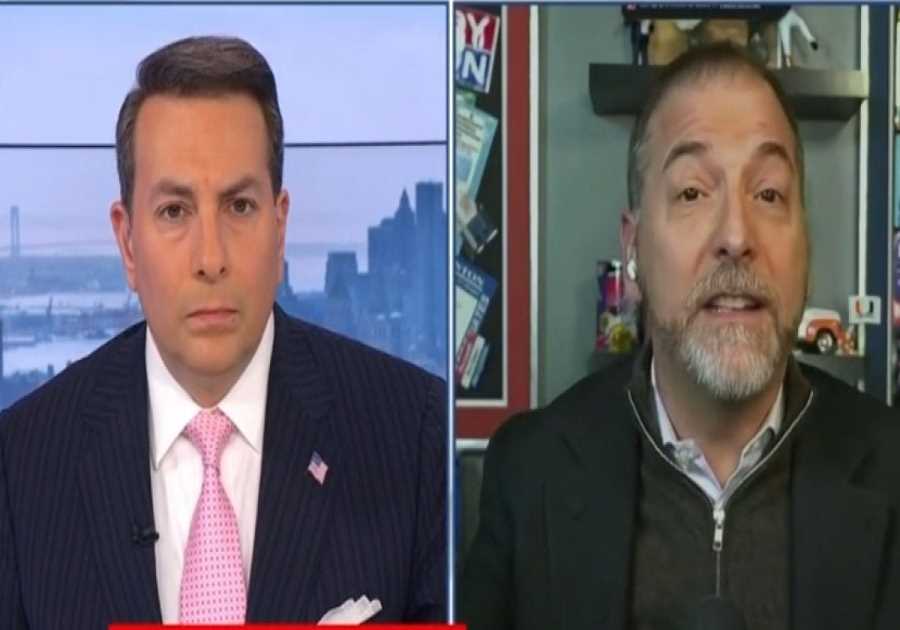Small Business Tax Planning: Latest Strategies & Tips for 2025
Small business tax planning for 2025 requires a proactive approach that aligns with evolving tax laws while maximizing available deductions and credits. With significant provisions set to expire and new opportunities emerging, small business owners need a strategic blueprint to optimize their tax position.
Are you tired of discovering tax-saving opportunities after filing deadlines have passed? You’re not alone. Most business owners I work with leave thousands of dollars on the table each year simply because they wait until March or April to think about taxes. Let’s change that narrative and put you in control of your tax destiny.
What is small business tax planning for 2025, and why does it matter?
- Small business tax planning for 2025 involves strategic financial decisions to minimize tax liability, maximize deductions, and ensure compliance with changing tax laws
- Entity selection directly impacts your tax burden by determining how business income flows to your personal return
- Timing strategies for income and expenses can shift tax liability between years for optimal savings
- Tax credits provide dollar-for-dollar reductions in tax liability, making them more valuable than deductions
- Proactive planning with qualified advisors ensures you’re leveraging every available opportunity before deadlines pass
Mastering Business Structure for Tax Efficiency
The entity you choose for your business isn’t just a legal formality—it’s potentially your biggest tax planning lever. For businesses earning more than $50,000 in annual profit, an S-Corporation can save thousands in self-employment taxes compared to a sole proprietorship or single-member LLC.
The key advantage comes from splitting your income between salary and distributions. While you must pay yourself a “reasonable salary” subject to payroll taxes, the remaining profit can be taken as distributions exempt from those taxes. This strategy alone saved one of my clients over $15,000 last year.
Remember that the IRS scrutinizes S-Corps closely, especially regarding salary levels. Too low, and you risk an audit; too high, and you lose the tax advantages. Working with an experienced CPA to establish appropriate compensation is essential.
Why entity type matters in 2025
Choosing between LLC, S-Corp, C-Corp, or sole proprietorship impacts not just your current tax situation but your long-term business strategy. With potential tax law changes looming, entity flexibility becomes even more valuable.
Case Study: S-Corp Transition Success
A software development client of mine transitioned from an LLC to an S-Corp when their annual profit reached $120,000. By setting a reasonable salary of $75,000 and taking the remaining $45,000 as distributions, they saved approximately $6,390 in self-employment taxes in the first year alone. The key steps included:
- Consulting with a CPA to establish market-rate compensation
- Creating proper payroll systems for the owner-employee
- Documenting business reasons for salary levels
- Implementing quarterly tax planning reviews
Exploiting Deductions Before 2025 Deadlines
The tax code offers numerous deductions that directly reduce your taxable income, but many business owners miss these opportunities. In 2025, several key provisions may change, making this year critical for maximizing deductions for small businesses.
Essential deductions every business must claim
Home Office Deduction: If you use part of your home regularly and exclusively for business, you can deduct $5 per square foot (up to 300 square feet) using the simplified method. Alternatively, you can calculate the actual expenses based on the percentage of your home used for business.
Retirement Plan Contributions: Contributing to a SEP IRA, Solo 401(k), or SIMPLE IRA reduces your taxable income while building your retirement savings. For 2025, contribution limits have increased, allowing for even greater tax savings.
Section 179 Deductions: This provision allows you to fully expense qualified equipment purchases in the year they’re placed in service, rather than depreciating them over several years. The 2025 limit is $1.2 million, a significant opportunity for businesses planning major equipment investments. The IRS provides detailed guidance on qualifying property through their tax deductions for small businesses publication.
Professional Development: Continuing education, training programs, and certifications related to your current business are fully deductible and often overlooked.
Avoiding common mistakes
From my experience working with thousands of business owners, I’ve seen countless missed deductions. Many clients don’t realize that even casual business meetings at coffee shops qualify as deductible expenses. Keep receipts for any expense with a legitimate business purpose, no matter how small.
Another common oversight is vehicle expenses. With the standard mileage rate for business use increasing to 70 cents per mile for 2025, tracking your business travel can yield substantial deductions.

Preparing for 2025 Tax Law Changes
The tax landscape is constantly evolving, and 2025 brings several critical changes that small business owners need to prepare for.
Critical provisions expiring this year
20% Qualified Business Income Deduction: This valuable deduction allows eligible pass-through business owners to deduct up to 20% of their qualified business income. Originally created by the Tax Cuts and Jobs Act, this provision is scheduled to expire after 2025 unless Congress extends it.
Research & Development Credits: The R&D Tax Credit now covers up to 25% of qualifying expenses, an increase from 20% previously. Additionally, eligibility has expanded to include more industries like software development and green technology. To claim this credit, you must document your R&D activities meticulously.
Bonus Depreciation: This provision has been phasing down and will be reduced to 80% for property placed in service during 2025. Consider accelerating planned asset purchases to maximize this benefit before further reductions.
Enhanced Section 179: While Section 179 is permanent, the higher expensing limits could be adjusted in future legislation. Taking advantage of the current $1.2 million limit for qualifying property should be a consideration for growing businesses.
Strategic Expense Timing and Income Shifting
One of the most powerful tax planning strategies involves controlling when you recognize income and incur expenses.
Deferring revenue/accelerating costs
For cash-basis businesses (which most small businesses are), you can defer income by delaying sending invoices until January for work completed in December. Similarly, you can accelerate deductions by prepaying certain expenses like insurance premiums, office supplies, or professional subscriptions before year-end.
This strategy works best when you expect to be in a lower tax bracket in the following year or when you need to reduce current-year income to qualify for certain credits or deductions.
Pro Tip: While these strategies can reduce your tax bill, they shouldn’t override sound business decisions. Work with your CPA to find the right balance between tax savings and cash flow needs.
Family gifting strategies
For family businesses, income shifting can be a legitimate tax-saving strategy. By employing family members (who must perform actual work) or utilizing the annual gift tax exclusion ($17,000 per recipient in 2025), you can shift income to family members who may be in lower tax brackets.
For example, hiring your college-age child for legitimate business work allows your business to deduct their salary, while they likely pay little to no income tax if their total income falls below standard deduction thresholds.
Technology-Driven Tax Compliance
Modern tax planning isn’t just about strategies—it’s also about leveraging technology to ensure compliance and maximize savings through better small business accounting practices.
Leveraging AI for real-time monitoring
Today’s accounting software does more than track expenses—it provides real-time tax insights that can help you make better business decisions throughout the year.
Advanced platforms now offer:
- Automated tax liability estimates based on current financials
- Deduction tracking alerts that identify potential tax-saving opportunities
- Quarterly payment reminders to avoid underpayment penalties
- AI-powered expense categorization to ensure proper tax treatment
These tools don’t replace professional advice, but they provide the real-time data needed for proactive planning conversations with your tax advisor.
Proactive Collaboration with Advisors
The most successful business owners view their accountant as a strategic partner rather than just a tax preparer. Engaging early and often with tax planning services for small businesses maximizes your opportunities for legitimate tax savings.
Why early 2025 planning pays off
Meeting with your tax advisor in the first quarter gives you time to:
- Project your tax liability under various scenarios
- Test the impact of potential entity restructuring
- Identify state-specific opportunities and obligations
- Plan major purchases or sales to optimize tax treatment
- Implement retirement plan strategies before deadlines
This approach transforms tax planning from a reactive scramble to a strategic advantage for your business.
A client who switched to quarterly planning meetings found that the structured approach not only reduced their tax bill by 22% but also improved their overall financial management by creating regular checkpoints for their business goals.
Conclusion
Small business tax planning for 2025 isn’t a one-time event—it’s an ongoing process that requires attention throughout the year. By optimizing your business structure, maximizing available deductions, preparing for tax law changes, strategically timing income and expenses, leveraging technology, and collaborating with qualified advisors, you can significantly reduce your tax burden while remaining fully compliant.
The strategies outlined here represent opportunities that too many business owners miss simply because they don’t plan ahead. Don’t be one of them. Start implementing these approaches today to position your business for tax-optimized success.
Ready to take your tax planning to the next level? Complete Controller’s expert team specializes in streamlining tax planning for founders just like you. Visit Complete Controller to learn how our cloud-based bookkeeping and controller services can help you implement these strategies with confidence.

FAQ Section
Which business entity structure offers the best tax advantages for small businesses in 2025?
The optimal entity structure depends on your specific situation, but S-Corporations often provide significant tax savings for profitable businesses by reducing self-employment taxes. However, LLCs offer flexibility, while C-Corporations might benefit from lower corporate tax rates for businesses retaining substantial profits. Consult with a tax professional to evaluate your specific circumstances.
How can I ensure I’m maximizing the 20% Qualified Business Income Deduction before potential expiration?
To maximize this deduction, verify your business qualifies (most service businesses face income limitations), track W-2 wages and qualified property investments that can increase your deduction limit, and consider year-end strategies like deferring income or accelerating expenses. Since this provision may expire after 2025, consulting with a tax professional is essential.
What are the most commonly overlooked tax deductions for small businesses?
Frequently missed deductions include home office expenses, business mileage, health insurance premiums, banking fees, professional development costs, business gifts (limited to $25 per recipient), and insurance premiums. Many business owners also overlook the potential to deduct startup costs, business loan interest, and certain business-related entertainment expenses.
How should I prepare for estimated tax payments to avoid penalties?
Set aside 25-30% of all business profits in a separate tax savings account, schedule calendar reminders for quarterly due dates (April 15, June 15, September 15, and January 15), use electronic payment options through the IRS website, and consider self-employed tax tips from the IRS. Working with a bookkeeper who provides monthly financial statements helps forecast tax obligations accurately.
What tax credits should small businesses prioritize for 2025?
Focus on the expanded Research & Development Credit (now up to 25% of qualifying expenses), the Work Opportunity Tax Credit for hiring from certain groups, the Small Business Health Care Tax Credit, small business tax credits 2025 for retirement plan startup costs, and energy efficiency credits for building improvements or electric vehicle charging stations. These dollar-for-dollar reductions can dramatically lower your tax bill.
Sources
- Axios. (2020). This boutique accounting firm is transforming the way Charlotte businesses operate – here’s how. axios.com/local/charlotte/sponsored/this-boutique-accounting-firm-is-transforming-the-way-charlotte-businesses-operate-heres-how-228829
- Azalea City Tax. (2025). The Top Ten Tax Changes Small Businesses Are Facing in 2025. azaleacitytax.com/top-ten-tax-changes-small-businesses-are-facing-in-2025
- Elliott Davis. (2025, March 21). Six Strategies to Optimize Business Tax Planning. elliottdavis.com
- FileLater. (2025). Tax Strategies for Small Business Success at Year-End. filelater.com/articles/tax-strategies-for-small-business-success-at-year-end
- Financial Times. (2025). ‘A horrible situation’: the entrepreneurs caught in R&D tax credit debacle. ft.com/content/1ff78beb-f15f-4573-a15b-a7ab2233cf84
- Internal Revenue Service. (2025). Publication 946: How to Depreciate Property. irs.gov/publications/p946
- Internal Revenue Service. (2025). Self-Employed Individuals Tax Center. irs.gov/businesses/small-businesses-self-employed/self-employed-individuals-tax-center
- Investopedia. (2025, April 3). 5 Small Business Tax Strategies to Know for 2025. investopedia.com
- Merrill Lynch. Tax Tips for Small Business Owners. ML.com
- NerdWallet. (2025, January 24). 7 Tax Planning Strategies to Know for 2025. nerdwallet.com
- Small Business Administration. (2025). Prepare Your Taxes. sba.gov/starting-business/business-financials-tax/prepare-taxes
- SVA Accountants. (2025, January 21). Key Tax Strategies for Businesses to Focus on in 2025. accountants.sva.com

About Complete Controller® – America’s Bookkeeping Experts Complete Controller is the Nation’s Leader in virtual bookkeeping, providing service to businesses and households alike. Utilizing Complete Controller’s technology, clients gain access to a cloud platform where their QuickBooks

file, critical financial documents, and back-office tools are hosted in an efficient SSO environment. Complete Controller’s team of certified US-based accounting professionals provide bookkeeping, record storage, performance reporting, and controller services including training, cash-flow management, budgeting and forecasting, process and controls advisement, and bill-pay. With flat-rate service plans, Complete Controller is the most cost-effective expert accounting solution for business, family-office, trusts, and households of any size or complexity.

Reviewed By:
Read More
By: Jennifer Brazer
Title: Small Business Tax Planning Tips
Sourced From: www.completecontroller.com/small-business-tax-planning-tips/
Published Date: Wed, 01 Oct 2025 14:00:17 +0000
.png)






